In the summer of 1952, a young romantic named Phil Dietterich set out on a journey to impress a girl, the future Mrs. Jane Dietterich.
He started off at Ohio Wesleyan University, where they both studied music, and hitchhiked his way through across Ohio, from Columbus down to Circleville. From there he walked the final 11 miles to Mrs. Dietterich’s hometown, his only company a few confused cows unaccustomed to late night walkers.
Mrs. Dietterich was rather surprised to find Mr. Dietterich, who had called the night before, asleep on her porch, waiting to join her on the bus ride back up to Columbus.
“He had proven himself then,” she said.
A year later, on Sept. 23, 1952, they were married.
Now at 91 and 88, Mr. and Mrs. Dietterich have spent the better part of their lives together, much of it on the Vineyard. They celebrated their 70th wedding anniversary last week at their home in Oak Bluffs.
In 1994, the couple moved to the Island full time, where Mr. Dietterich has logged many Sunday hours as a substitute organist for nearly every church on the Island. He is thankful, he said, that most of the churches switched to lock boxes, so he didn’t have to carry around so many keys. He also writes and performs the music for the annual Bloomsday festival and plays weekly shows at Windemere.
The couple first met in college while working at the women’s dining hall.
“Phil had dates lined up with all those girls for three months,” Mrs. Dietterich said with a laugh, while seated at home near the Everett Piano in the center of their sitting room. The couple doesn’t shy away from a casual duet; Tea for Two is a reliable favorite.
Before college, Mr. Dietterich had attended an all-boys prep school and said his face turned red the first time he walked into the dining hall. But by sophomore year, the two started “going together” and things moved quickly from there.
“When I turned 21, I got an idea,” said Mr. Dietterich. “I thought to myself, ‘what can I do at 21 that I couldn’t do at 20,’ and, well, I decided that I could get married.”
“All of our friends thought we had gone crazy,” Mrs. Dietterich added. “But we did it anyway.”
The idea presented a major problem though — neither of the families approved of the marriage. And since Mrs. Dietterich was just 18 (she entered college early and Mr. Dietterich late), she couldn’t get married yet in the state of Ohio.
It was a recipe for an elopement. And so the newly, and perhaps irresponsibly, engaged lovebirds boarded the next bus to Indianapolis and had their wedding rings engraved with the date, 9/23/52. This started the timer ticking, since they still had to find a preacher that day and couldn’t get the rings un-engraved.
They received an assist from their taxi driver, who took them on a tour of the city’s churches and brought out his own steam iron to get their clothes ready. Mr. Dietterich wore his only suit and Mrs. Dietterich her best dress, the same one she wore as part of the parade for the “pumpkin queen” ceremony back in Kingston, Ohio.
By the time the priest had quizzed them sufficiently about matrimonial matters it was almost midnight, but the ceremony started just under the wire. The taxi driver then took them to a cheap steakhouse to celebrate.
Their honeymoon was far from conventional. Mrs. Dietterich’s family hired a detective to locate the wayward couple but by the time her father reached Indianapolis, they had already hitchhiked their way to rural Wisconsin, where Mr. Dietterich served as a cow-milking farmhand. For entertainment, he said, they would watch the daily shipment of whey brought to the pig trough.
“It was so fun watching the pigs eat,” he said. “And the pigs didn’t mind either!”
Eventually, their parents found them and convinced them to return to school, during which time Mr. Dietterich served as minister for two churches while his bride played the organ. Since then the marriage has been defined by music. After a few more years of school and
the birth of their first two daughters, Mr. Dietterich became choir director for a large church in Westfield, N.J., where he spent the next 33 years. It was during that time that they first visited the “magical island” that one of their parishioners wouldn’t stop talking about, and soon they became longtime seasonal residents of Webb’s Camping Area before retiring here full time.
In their 70th year of matrimony, with four kids, eight grandkids, one great-grandson and another on the way, the couple has spent some time reflecting this year. Repeating a Kierkegaard quote scribbled on the back of some sheet music, Mr. Dietterich said: “Life can only be understood by looking backward; but it must be lived looking forward.”
Asked if they have any advice for other married couples just starting out, Mrs. Dietterich gave two maxims: “Never argue when you are hungry. And always be adaptable.”

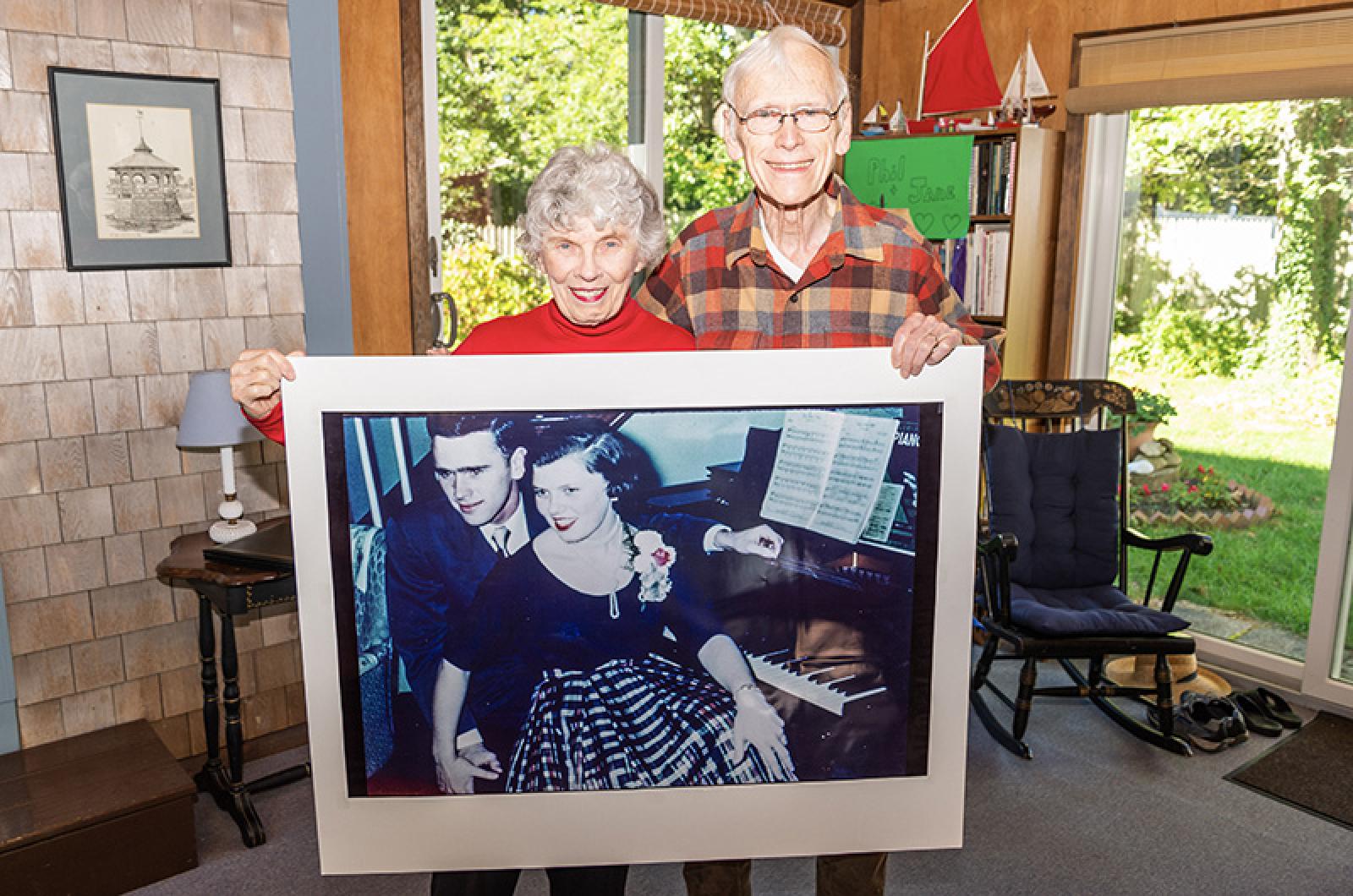
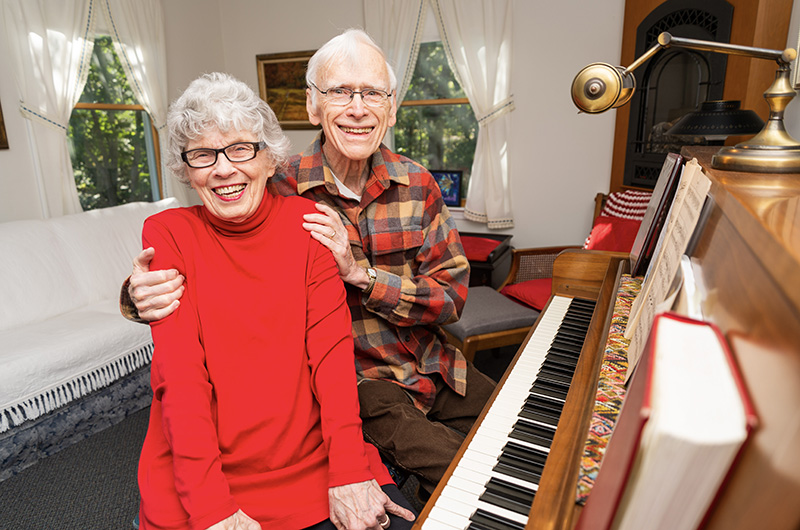
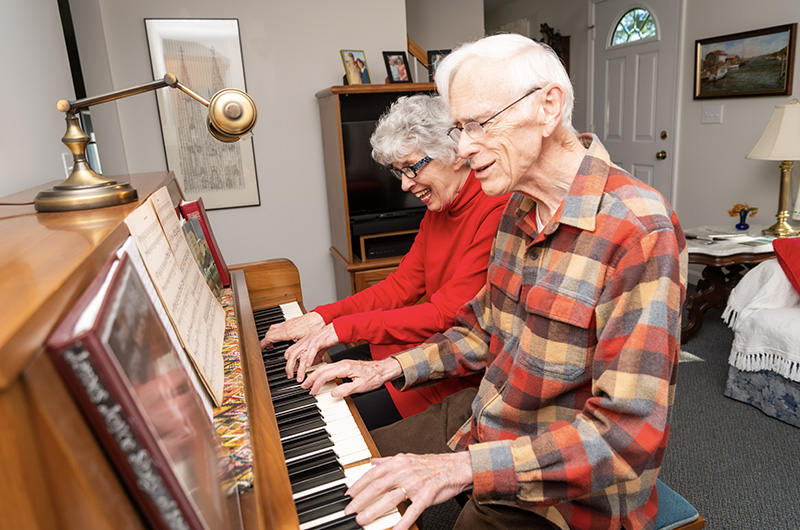
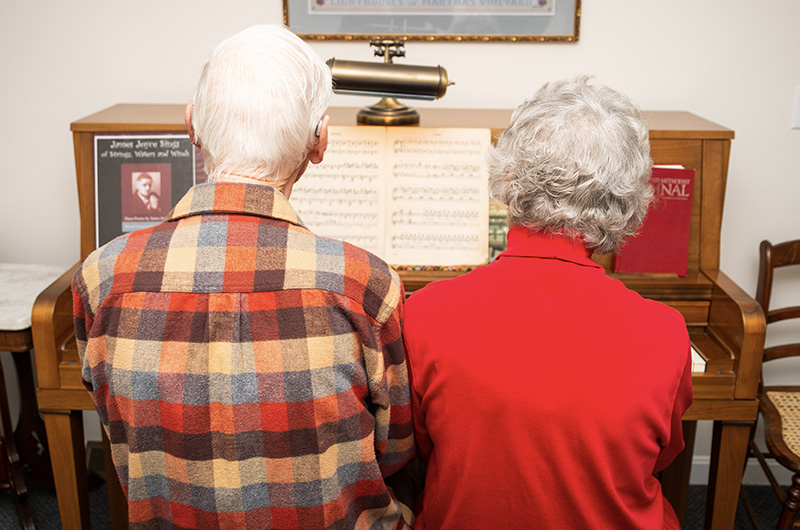
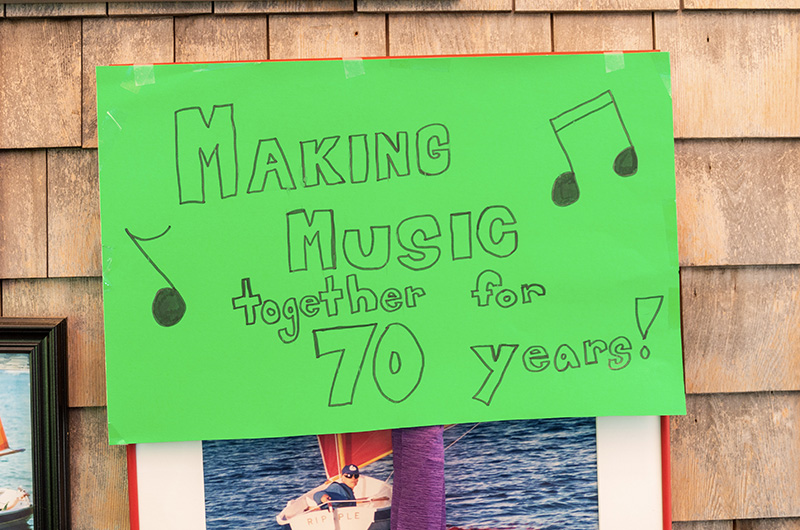


Comments (10)
Comments
Comment policy »